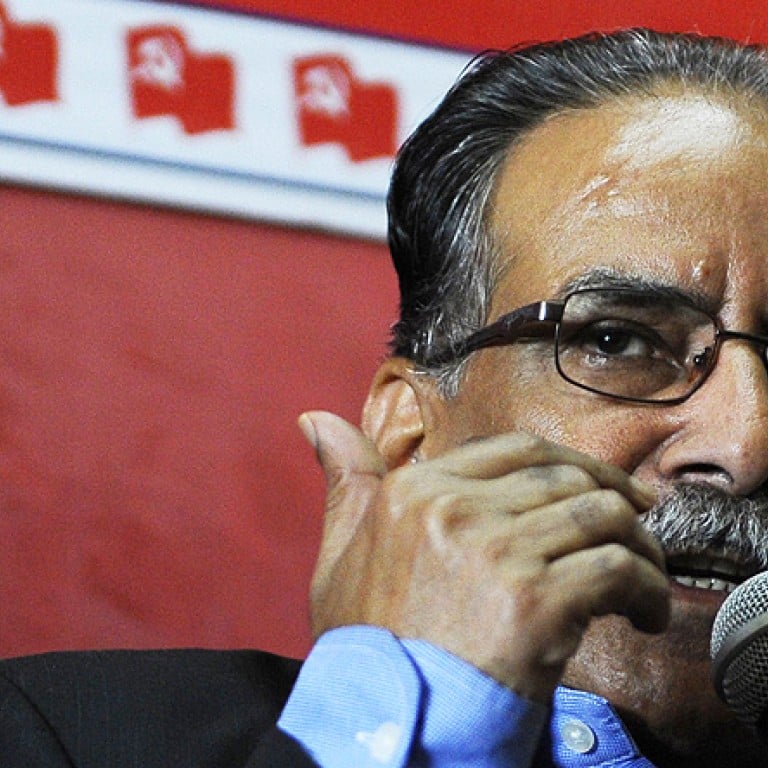
Nepal's Maoist leader Prachanda casts doubt over poll results after big losses
Nepal’s former rebel leader alleged on Thursday national elections were rigged after he reportedly lost his seat, sparking fears of renewed political instability in the Himalayan nation struggling to recover from a decade-long civil war.
Nepal’s former rebel leader alleged on Thursday national elections were rigged after he reportedly lost his seat, sparking fears of renewed political instability in the Himalayan nation struggling to recover from a decade-long civil war.
Pushpa Kamal Dahal, a former prime minister better known as Prachanda, demanded a halt to vote counting following Tuesday’s elections, which were held for only the second time since the end of a decade-long civil war in 2006.

Early results showed the Maoist party, whose members relinquished arms and embraced politics after the war, trailing badly in the elections, seen as key to completing a peace process which has drifted in recent years because of a political deadlock.
“We urge the election commission to stop the counting,” Prachanda told a press conference. “We accept (the) people’s verdict but cannot accept conspiracy and poll-rigging,” he said.
The Maoist chief said ballot boxes were tampered with while being transported from polling stations to counting centres.
The former guerrilla war leader headed the first post-war government in 2008 but his stint in power ended after nine months following a clash with the army. More recently, he has faced flak over alleged corruption and his taste for luxury following the war.
Millions of Nepalis voted on Tuesday, with turnout pegged at 70 per cent – higher than the first post-war elections in 2008 for a constituent assembly that is charged with writing a constitution.
The Maoists swept the vote five years ago, promising social change, economic growth and lasting peace to a country that saw an estimated 16,000 people killed in the conflict.
But they have since faced sharp criticism from many core supporters who accuse them of abandoning their revolutionary ideals and adopting a life of luxury while in power.
Political infighting since the 2008 polls has seen a string of coalition governments split and fail to write a draft constitution, forcing the collapse of the assembly in May last year and leaving the country frustrated over a lack of progress.
The Maoists’ decision to disregard Tuesday’s election results casts doubt on the peace process, following recent violence by a splinter faction of the party that called for a boycott of the polls.
Anti-poll protestors torched vehicles, planted crude bombs and hurled explosives at traffic, leading to over 370 arrests and one death.
Tentative results showed the Maoists leading in just six per cent of the 159 constituencies where vote counting is well under way.
Even if the party were to sweep the remaining 81 directly-elected seats, they would have won less than forty per cent of the vote.
Chief Election Commissioner Neel Kantha Uprety told a press conference early Thursday that the counting was being carried out in “a transparent manner” and would continue.
“An election is a way to understand the people’s verdict, I request all political parties to respect (the) people’s opinion,” Uprety said.
Preliminary results are likely to emerge by Friday with full results expected by the end of the month, election officials say.
More than a hundred protestors gathered outside the Maoist headquarters in Kathmandu on Thursday, raising slogans in support of the party’s decision.
“We are ready to fight again,” they shouted.
Former US president Jimmy Carter, who is in Kathmandu to monitor the polls, said the elections were “a momentous step forward” in the once war-wracked country.
The Maoists waged a “people’s war” against government forces which came to an end in 2006 with a peace agreement that paved the way for multi-party democracy and the abolishment of the monarchy.
“The international observers, the domestic observers and all the major parties will say this was a surprisingly good and fair and already proven to be safe election,” Carter said in an interview on Wednesday.
More than 100 parties, including three major ones – the Unified Marxist-Leninist, the Nepali Congress and the Maoists – have fielded candidates for the constituent assembly.
In addition to the 240 directly-elected seats, an additional 335 seats will be awarded via a proportional representation system and a further 26 members will be chosen by a council of ministers.
